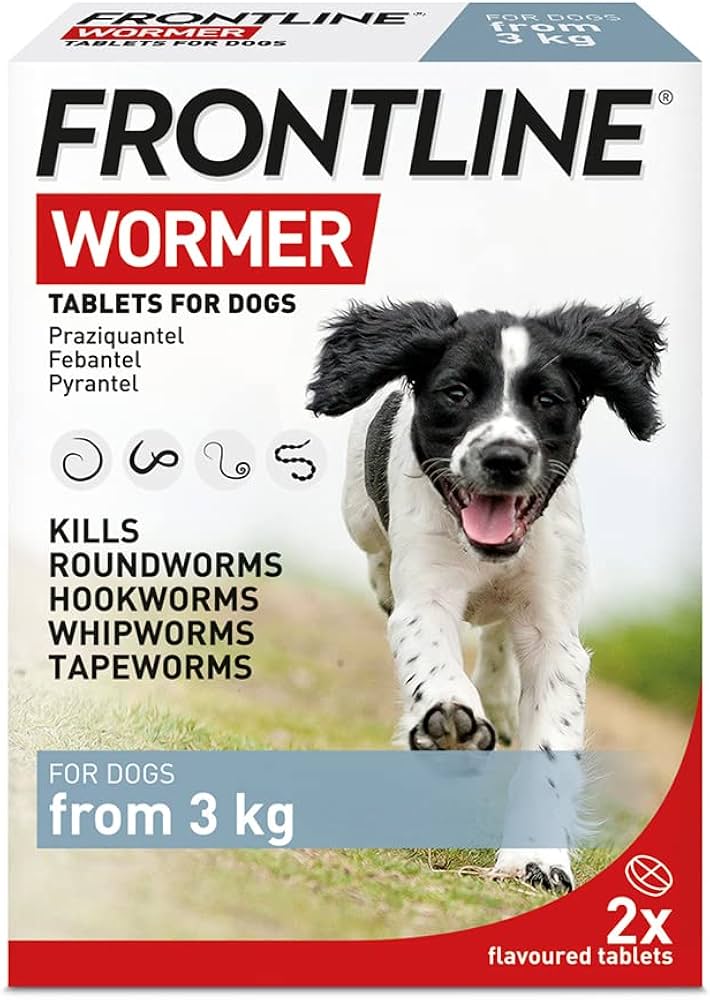Navigating the world of canine deworming can be overwhelming, with a vast array of products lining pet health shelves and supermarket aisles. A key distinction often arises: veterinary-recommended wormers typically differ from those widely advertised. This divergence stems from the tighter regulation of more potent and effective medications, with veterinary professionals prioritizing the safest and most impactful options available.
Understanding the Worms We’re Concerned About
In dogs, two primary worm families demand our attention: roundworms and tapeworms. While some dewormers target both, many are specific to one type. Consequently, the most effective products on the market often combine multiple active ingredients to ensure comprehensive coverage.
Types of Canine Dewormers
The active ingredients in dewormers are diverse and can be categorized based on their availability and the legal classifications governing their sale.
Herbal Products (e.g., Garlic Tablets)
These have a long history of use, but carry significant risks. While garlic might possess a weak anti-worming action, it is also toxic to dogs and can lead to severe anemia. Although dog-safe garlic powder exists with toxic components removed, its efficacy against worms appears minimal. Therefore, due to safety and potency concerns, herbal wormers are not recommended.
Homeopathic Remedies
A more recent invention, homeopathic remedies are based on the principle of “like cures like” through extreme dilution. Unfortunately, there is no scientific evidence to support their efficacy in reducing worm counts in animals.
Over-the-Counter (OTC) Medications
Available in general stores, these medications are classified as AVM-GSL (Authorised Veterinary Medicine, General Sales List). They often contain milder active ingredients, such as piperazine, which paralyzes worms rather than killing them, aiding in their expulsion. Some OTC wormers feature potent, potentially toxic ingredients in very low doses. However, more effective options are also available, including products containing febantel, praziquantel, and pyrantel, which offer broad-spectrum activity against both tapeworms and roundworms. Additionally, some potent anti-tapeworm drugs containing praziquantel are accessible OTC. It is crucial to note that products with similar brand names can have entirely different active ingredients, making careful ingredient checking essential.
Pet Shop / Non-Prescription Veterinary Wormers
These products can be purchased from registered premises like veterinary clinics, farm merchants, and certain pet shops, requiring the presence of a qualified person (an SQP). Classified as NFA-VPS (Non-Food Animal, Veterinarian, SQP, or Pharmacist), these wormers have demonstrated both safety and effectiveness. They typically combine drugs like febantel or oxantel with praziquantel and pyrantel for robust roundworm and tapeworm control. Single-ingredient products, such as fenbendazole, are also available for roundworm treatment.
Prescription-Only Veterinary Wormers
Representing the most potent and often most effective options, these medications require a prescription from a veterinarian. Legally classified as POM-V (Prescription-Only Medicine, Veterinary), they cannot be advertised. These often include tablets with milbemycin and praziquantel, capable of eliminating nearly all types of worms. Some formulations combine an anti-flea component with a wormer for concurrent treatment. Additionally, spot-on treatments containing imidacloprid and moxidectin, or selamectin, target fleas and worms, with specific combinations even capable of treating lungworm.
Making the Right Choice for Your Dog
The most effective way to determine the best deworming product for your dog is to consult with your veterinarian or a veterinary nurse. They can assess your pet’s individual needs and recommend the most suitable and safe option.
Frequently Asked Questions
What is the best way to treat worms in dogs?
The best approach involves consulting your veterinarian to select the most appropriate dewormer based on your dog’s specific needs and the types of worms they may have contracted.
Can roundworms in dogs be passed to humans?
Yes, certain types of roundworms in dogs, such as Toxocara canis, can be transmitted to humans, posing a health risk, particularly to children.
Can you get lice from a dog?
While dogs can get lice, these are species-specific and generally cannot be transmitted to humans. Humans can contract their own type of lice.
References
- Hills Vets. (n.d.). What wormers are best for dogs? Retrieved from https://hillsvets.co.uk/what-wormers-are-best-for-dogs/

